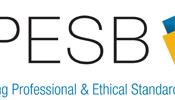Introduction
Ethics can be defined as a process of evaluating actions according to moral principal of values (A.Alhemoud). Throughout the centuries people have been trying to choose between profit and moral. Those issues concern fairness, justice, rightness or wrongness; as a result it can only be resolved according to ethical standards.
Setting the ethical standards for the way of doing business in corporation is primarily the task of management. Corporations have to maintain the same standards as an individual person and, in addition, corporations, as organizational units, have their own social responsibilities toward customers, employees and society. However, any business should keep it's original purpose of functioning - making profit. Balancing the traditional standards of profitability and burden of social responsibilities is not an easy task. In recent years it has been a trend of setting standards of corporate ethics according to high degree of morale. In this paper I intend to look at both viewpoints.
De Wit and Meyer state that a "business organization must be profitable to survive. Yet simple profitability, that is having higher income than costs, is not sufficient. To be an attractive investment, a company must earn a higher return on the shareholders equity than could be reached if the money were deposited in a bank. Profitability is a source of competitive power and provides a company with the financial leeway to improve its competitive position and pursue its ambitions".
It is my opinion that a firm that has competitive power also has a large amount of influence in today's society for the reason that some companies have larger revenues than a large amount of countries, for example General Electric makes $132 billion in sales. This power can sometimes cause tensions between stakeholders and shareholders when conflicts arise due to corporate decisions that have a...



Strategic Tensions
This essay answered all questions for my assignment. Very well written.
1 out of 1 people found this comment useful.